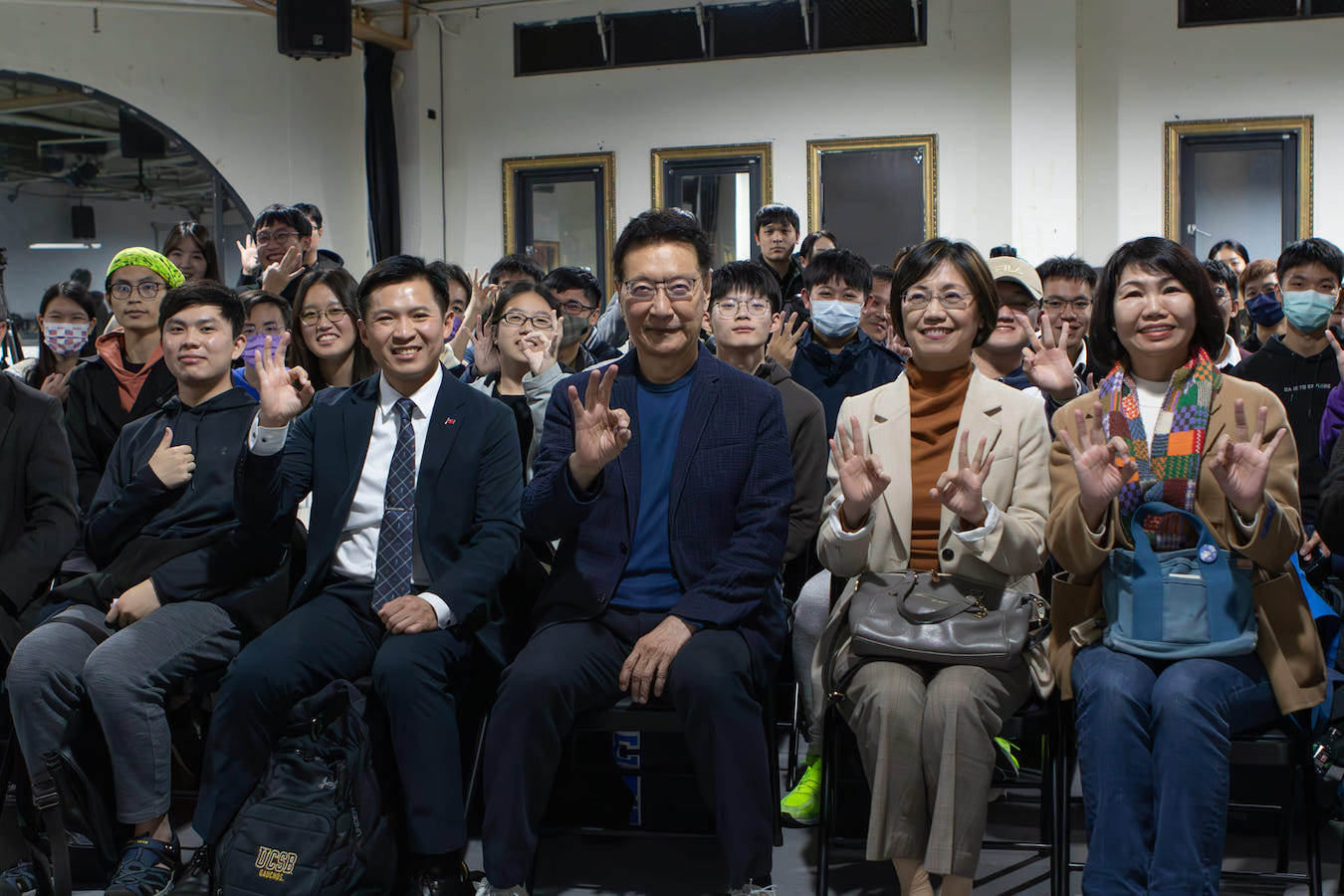by Brian Hioe
語言:
English
Photo Credit: Jaw Shaw-kong/Facebook
KMT VICE PRESIDENTIAL candidate Jaw Shaw-kong has come to dominate headlines lately. In particular, Jaw seems to have taken a more proactive role in the KMT’s campaigning than the actual KMT candidate, Hou You-yi.
This illustrates how Jaw’s skillset is in many ways complementary to Hou You-yi’s. Or rather, Jaw is adept at campaigning in a way that Hou is not. After all, Hou originally rose to national fame at a time when local politicians in Taiwan were praised for not spending time on grandstanding with regard to national politics, with him and Taoyuan mayor Cheng Wen-tsan of the DPP seen as potential frontrunners in a presidential election and Ko Wen-je doing quite poorly in polls.
Yet for presidents, voters may hope for a candidate with national vision. Hence despite his poor performance during that period, Ko has again risen to be a viable candidate–he is seen as having more of a vision than the relatively colorless Hou.
Given Hou’s weakness, Jaw now sets the tone for the KMT’s campaign. Nevertheless, to do this, Jaw has doubled down on theatrics at the expense of policy. One observes that his performance during the vice presidential debate, for example, was largely dependent on theatrics rather than offering solid stances on policy.
This included promising to resign from his post as Broadcasting Corporation of China (BCC) chair if Lai Ching-te of the DPP donated a home that he has come under fire for as an illegal structure to become a museum on the history of miners in Taiwan, as he promised. Claiming that he no longer wished to wait for Lai, Jaw dramatically did this yesterday during the vice presidential debate. In the same debate, Jaw also promised not to take any salary as vice president and to donate the vice presidential residence to be used as a youth residence. It is to be seen if Jaw follows through on such promises.
Nevertheless, what may be significant is to what extent Jaw has doubled down on attacks on the DPP where the cultural sphere and media are concerned.
 Jaw Shaw-kong (center). Photo credit: Jaw Shaw-kong/Facebook
Jaw Shaw-kong (center). Photo credit: Jaw Shaw-kong/Facebook
For one, Jaw accused the DPP of concocting a story first reported on CNN that Taiwanese band Mayday came under scrutiny for lip-synching as retaliation for the band refusing to undertake some form of action that China hoped would push young people to vote for the KMT. This follows up on how he called on China’s Taiwan Affairs Office (TAO) to deny the story in the vice presidential policy presentation, which the TAO did in fact do.
Jaw specifically claimed yesterday that the DPP had concocted this story in collaboration with international media. Jaw stated that if the KMT wins, he will take legal action to target those responsible for the story. As such, Jaw’s comments during the vice presidential debate may be read as threatening international media.
Jaw claimed that the DPP concocts a story along such lines during each presidential election cycle suggesting that this was the Chou Tzu-yu incident in the 2016 election cycle and the Wang Liqiang incident in the 2020 election cycle. Jaw then went on to call on Mayday to come forward with the truth about the incident.
Jaw also went on to claim that he had invited Taylor Swift to perform in Taiwan in his capacity as BCC chair and that Swift had turned this down, citing the geopolitical dangers that Taiwan faces. The Ministry of Culture has denied the details of this, though it did not deny the whole story–it is possible that Jaw did actually invite Swift to Taiwan. Either way, the BCC would have been an odd host for Taylor Swift, with this claim reminding somewhat of KMT 2020 presidential candidate Han Kuo-yu’s claims that he would invite Arnold Schwarzenegger to Kaohsiung as mayor, as well as build a Disneyworld there.
Jaw may be trying to bait the Tsai administration into confrontations to try and make it seem to voters as if the Tsai administration is playing up dangers from China and the possibility of election interference. To this extent, although the DPP has criticized Jaw as seemingly following along with the cues of China’s TAO, one notes that some of Jaw’s messaging appears to be directed at the TAO to go along with his messaging. Yet pressure on Taiwanese entertainers operating in the Chinese market is nothing new, whether from Chinese citizens or the government.

